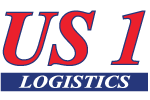The demand for freight broker agents is skyrocketing, and many freight brokers are looking for agents to help meet the growing needs of shippers. This demand creates significant job opportunities for both seasoned professionals and those new to the field.
Independent Freight Agent Jobs
One of the most attractive options for many is the opportunity to work as an independent freight agent. This career path allows for flexibility and independence, as  you’re not tied to a single brokerage firm. Freight agents can work remotely, set their own schedules, and grow their business by partnering with multiple carriers and shippers.
you’re not tied to a single brokerage firm. Freight agents can work remotely, set their own schedules, and grow their business by partnering with multiple carriers and shippers.
Freight Broker Agents Wanted
Many trucking companies and freight brokerages are actively seeking skilled freight broker agents to manage their client relationships and broker deals. This demand is expected to continue growing, with freight broker agent opportunities expanding across the country.
Why Freight Broker Agent Jobs Are on the Rise
The job market for freight broker agents is thriving for several reasons:
- Low Overhead: Becoming a freight broker agent doesn’t require heavy upfront investment. As long as you have a computer, phone, and a solid understanding of the industry, you can start building your client base.
- Remote Flexibility: With the rise of remote work, freight agents can work from anywhere, which is an attractive perk for those seeking a flexible lifestyle. As long as you can connect with shippers and carriers, you don’t need to be tied to a physical office.
- Growing Industry: The logistics industry is expected to grow significantly over the next decade, offering stability and long-term career prospects for freight broker agents.
Skills and Qualifications for Freight Broker Agents
 To succeed in the freight broker agent role, it’s important to have a specific set of skills:
To succeed in the freight broker agent role, it’s important to have a specific set of skills:
- Industry Knowledge: Understanding the ins and outs of the transportation and logistics sectors is crucial. This includes knowing how freight moves, understanding rates, and building relationships with carriers and shippers.
- Negotiation Skills: Freight agents often negotiate deals between shippers and carriers, so strong communication and negotiation skills are a must.
- Networking: Building and maintaining a network of reliable carriers and shippers is key to being a successful freight agent. Those who can establish and maintain relationships will have a competitive edge.
- Customer Service: Freight brokers looking for agents highly value professionals who can manage relationships with both carriers and clients. Providing top-notch customer service will help you retain clients and grow your business.
How to Get Started as a Freight Broker Agent
If you’re interested in pursuing a career in this field, the good news is that there are many freight broker agent opportunities available. Here’s how you can get started:
1. Gain Knowledge of the Industry
While formal education isn’t always necessary, understanding the logistics and trucking industry is essential. Many agents start by working in related fields, such as trucking or supply chain management, before becoming agents.
2. Build a Network
Freight brokers and agents rely on strong relationships with both shippers and carriers. Attend industry events, join logistics networks, and make connections to build a solid base of partners.
3. Consider Freight Broker Agent Programs
Many trucking companies and brokerages offer freight agent broker programs to help you get started. These programs often provide training, resources, and support, allowing new agents to hit the ground running.
4. Get Licensed (If Needed)
In some cases, becoming a licensed freight broker may be necessary. You’ll need to register with the Federal Motor Carrier Safety Administration (FMCSA) and obtain a broker’s license, although freight broker agents typically work under the license of a parent brokerage.
Opportunities for Growth
The freight brokerage industry offers a diverse array of opportunities for career growth, making it an appealing choice for professionals at all levels. As you gain experience, build relationships, and refine your skills, your career can evolve in various directions, offering both flexibility and financial rewards.
1. Starting with a Brokerage
Many freight broker agents begin their careers by working for an established freight brokerage. This is often the best way to learn the ropes of the industry without the pressure of immediately running your own operation. Working under an experienced brokerage provides access to essential tools, support, and resources, allowing new agents to focus on learning how to manage client relationships, negotiate rates, and navigate the complexities of logistics.
pressure of immediately running your own operation. Working under an experienced brokerage provides access to essential tools, support, and resources, allowing new agents to focus on learning how to manage client relationships, negotiate rates, and navigate the complexities of logistics.
Agents can also benefit from a structured environment where they are often mentored by seasoned professionals. As part of a team, they can develop their skills in managing shipments, understanding regulatory requirements, and working with logistics technology like transportation management systems (TMS). Over time, agents can begin to develop a reputation and portfolio of clients, positioning themselves for the next phase of their career.
2. Transitioning to Independent Freight Broker
For many, the natural next step is to transition from working for a brokerage to becoming an independent freight broker. Running your own business allows for greater flexibility and autonomy. As an independent broker, you control your client relationships, set your own rates, and have the freedom to choose which shipments you want to handle.
This shift to independence can be highly rewarding, especially for agents who have built a strong network of shippers and carriers. Independent freight brokers can leverage their industry connections to negotiate better rates and establish their own niche markets, increasing their earning potential. Since they are no longer bound to a single brokerage, independent brokers can expand their services, build their brand, and pursue new market opportunities at their own pace.
3. Specializing in High-Demand Sectors
Another exciting opportunity for career growth lies in specializing within the freight industry. While many freight broker agents handle a wide variety of shipments, focusing on high-demand sectors can provide a significant edge. For example:
- International Shipping: Specializing in international freight allows brokers to navigate the complexities of cross-border shipping, including customs regulations, international tariffs, and foreign logistics networks. These brokers are highly sought after by companies engaged in global trade, and they can command premium fees for their expertise.
- Hazardous Materials (HazMat): Brokers who focus on hazardous materials transportation are tasked with ensuring strict compliance with safety regulations and handling complex logistics for dangerous goods. This specialization is not only lucrative but also critical, as the risks involved require specific knowledge and certifications. As a result, HazMat brokers often enjoy higher commissions due to the specialized nature of their services.
- Expedited Freight: Companies that need to move goods quickly and efficiently, such as those dealing with time-sensitive shipments, rely on brokers who specialize in expedited freight. This sector demands quick decision-making, exceptional organizational skills, and the ability to coordinate with carriers who can guarantee fast delivery times. Expedited freight brokers are often able to charge higher rates because of the premium placed on speed and reliability.
4. Expanding into Niche Markets
Beyond these specializations, some brokers may carve out niche markets such as refrigerated goods (perishables), oversized shipments, or fragile goods, further increasing their potential to charge higher rates. Brokers in these sectors provide tailored solutions that cater to the unique needs of clients, allowing them to become trusted partners and maintain long-term, lucrative relationships.
5. Building a Freight Brokerage Firm
As freight brokers gain experience, many decide to expand by building their own freight brokerage firm, hiring agents, and scaling their operations. Establishing a firm allows brokers to operate on a larger scale, manage multiple clients, and handle more complex logistics challenges. Additionally, running a brokerage firm enables them to tap into emerging markets and take advantage of advanced freight technologies such as freight management software and automated tracking systems, further enhancing operational efficiency.
Owning a brokerage firm comes with significant earning potential, as the owner not only manages clients directly but also benefits from the success of their agent team. By cultivating a reliable network of carriers and shippers, expanding into new markets, and continuously honing their logistics expertise, freight brokers can position themselves as industry leaders.
The freight brokerage industry offers diverse paths to career advancement for those willing to learn, adapt, and specialize. Whether you start by working under a large brokerage or venture out as an independent freight broker, the opportunities for growth are plentiful. Specializing in high-demand sectors, expanding into niche markets, or eventually building your own brokerage firm can all lead to greater financial rewards, professional development, and long-term success.
As the logistics industry continues to grow, driven by e-commerce and global trade, the demand for skilled freight broker agents will only increase—making this an exciting time to explore your next steps in the booming freight brokerage market.
A Promising Future in Freight Broker Agent Jobs
The logistics industry is booming, and the demand for freight broker agents is at an all-time high. With the increasing complexities of global supply chains and the growing need for cost-effective shipping solutions, now is the perfect time to explore freight agent job opportunities.
Whether you’re considering starting as an independent agent or working with a larger brokerage, the freight broker career path offers flexibility, low startup costs, and significant earning potential. With the right skills, a strong network, and a willingness to learn, you can build a successful and rewarding career in this fast-growing industry.
Take advantage of the many freight broker agent jobs available and start your journey in the thriving logistics market today!



Recent Comments